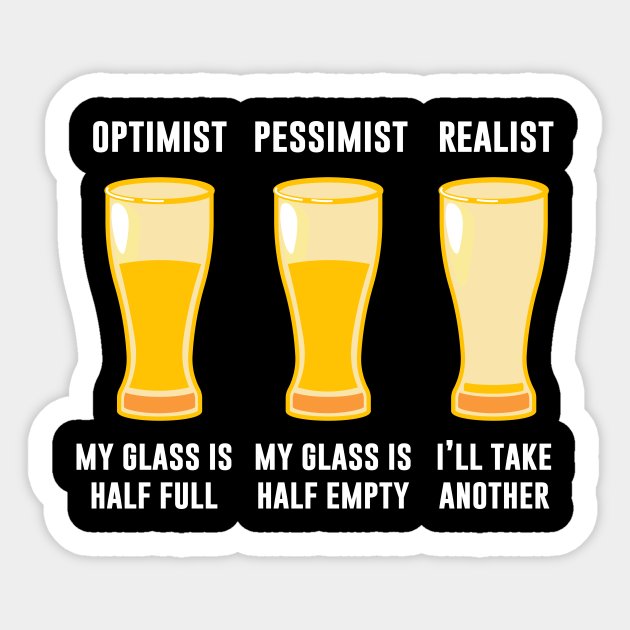
Using t-test, it can be concluded that there is a significant difference between two sets of data to prove an increase in optimism after the conference. But, true positive thinking is basically recognizing what you have control over, what you want to have control over, and focusing more on what you have control over. The NET optimism, the difference between the optimists and the pessimists, in the beginning was +64 and ended up to +81 in the end. First, optimism is often seen as a Panglossian perspective that deludes a person into vulnerability to disappointment. In contrast, optimism faces an uphill battle for recognition as an independent construct.

The idea that you just put on a smile and things are great is delusional. Pessimism has an important place as a predisposing factor to depression, and relieving pessimism is crucial in the course of cognitive therapy. I conclude by showing that while Nietzsche's understanding of pessimism remains Schopenhauerian in this book he transforms the problem of pessimism by locating it within the temperament of human beings. 'Positive Thinking' like what we're used to in the last 75 years IS delusional. And we need pessimism to keep us grounded, wary of risks and dangers, to make us recognise limits and restrictions. Interventions typically rely on cognitive-behavioural tools. We need optimism to keep us motivated, to compel us to perform actions, and reassure us that we have control over our own lives. Without a belief in gods or ghosts, unmotivated by a comprehensive delusion, they could never plant a bomb, plan. Optimism is generally accepted by psychiatrists, psychologists and other caring professionals as a feature of mental health. countries, families, and everything else that puts both average and above-average citizens in the limelight, pessimists are sideliners in both history and the media.

I formulate three readings of this notion and argue that Nietzsche is developing the Schopenhauerian claim that all goals of action are, in truth, given to us by nature. To think in terms of either pessimism or optimism. While Nietzsche now maintains that theoretical judgments do not justify any position on the value of life, he still holds that a person who sees life accurately will exhibit the practical world-denial characteristic of the pessimist because such a person will apprehend what Nietzsche calls the “goallessness” of humanity. I show that Nietzsche's repudiation of optimism and pessimism rests on a distinction between theoretical and evaluative judgments that originates in his reading of Eugen Dühring's The Value of Life.

In Book I of Human, All Too Human, Nietzsche maintains that optimism and pessimism are both outdated because no judgment concerning the value of life gains support from the naturalistic philosophy that he now embraces.


 0 kommentar(er)
0 kommentar(er)
